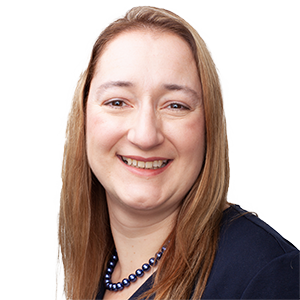Introduction
Takeaway and delivery services have become more prevalent in the restaurant sector in recent years, with websites and mobile applications making it easier to find and order from your nearest takeaway. The closure of restaurants for the majority of the past 12 months due to the COVID-19 pandemic has further fuelled the increase in use of takeaways and food delivery services. Now, delivery companies and restaurants have spotted a gap in the market and are opening so-called “dark kitchens” which only prepare meals for takeaway and/or delivery.
Dark kitchens are purpose-built kitchen units, which are staffed and stocked by the restaurant providing the food. Sales do not take place from these units and there is no ability for customers to collect an order at the sites themselves. The kitchens often make use of existing buildings or in mobile portacabins on sites with car parks or redundant land.
It may appear easy to start up these dark kitchens, but can they simply be opened just like that? What planning and environmental considerations might one be required to take into account before pursuing such a venture?
Planning permission
Planning permission is required for a material change of use of a property, save for a change of use within the same Use Class (as defined in the Town and Country Planning (Use Classes) Order 1987 (“UCO”)), or where a change is permitted by permitted development rights.
However, as this type of use is novel, there is no definite guidance as to the use class of a dark kitchen. The Land Use Gazetteer (a useful tool for determining use classes but it has not been updated since 2005) lists a “food preparation place with no sales to visiting members of the public” as falling within the old Use Class B1(c). Use Class B1(c) is now incorporated into the new wide Use Class E as Class E(g)(iii), as of 1 September 2020. This use covers an industrial process that could be carried out in a residential area without detriment to its amenity. An industrial process is defined in the UCO as “…a process for or incidental to…the making of any article….”. Previously, the High Court has found that a building used as a cooking centre by caterers who prepared and cooked school meals was a “light industrial building”. On a straightforward interpretation of the wording in the UCO, the preparation and cooking of meals in dark kitchens is clearly a “a process for…the marking of any article…” placing them in Use Class E(g)(iii).
This approach appears to be followed by the London Borough of Tower Hamlets, who recently granted two planning permissions for “the erection of Class B1(c) commercial kitchen pod units”. However, other local authorities have taken a different approach. The London Borough of Camden took enforcement action against the operator of a dark kitchen for a failure to apply for planning permission for a change of use to a dark kitchen, they determined it to be a sui generis use.
If a use does not fall within the classes set out in the UCO, then that use is said to be sui generis. Although Use Class E(g)(iii) appears to fit a dark kitchen use the most, those planning on converting an existing building should discuss the use class with the local planning authority first.
Converting an existing building within Use Class E (e.g. retail, office, café/restaurant) to a use within E(g)(iii) would not require planning permission (provided no external works were to be undertaken) as the change of use from one Use Class E use to another Use Class E use is not classified as development under the Town and Country Planning Act 1990 and so does not require planning permission. If a local planning authority wishes to categorise dark kitchens as sui generis however, planning permission would be required for a change of use.
If a provider of a dark kitchen is able to convert an existing building without the need to obtain planning permission then although no new planning conditions would be imposed, any existing planning conditions or planning obligations that relate to the use of the building would still need to be complied with.
Environmental considerations
If a dark kitchen is located in a residential or built-up area, then the operator must be considerate of their neighbours. The delivery vehicles arriving and departing the kitchen will undoubtedly create noise and the cooking itself could cause odours to be released into the neighbourhood. These problems will often be dealt with by planning conditions requiring travel plans, noise limitations and the installation of ventilation. However, if the operator was able to convert an existing building that did not suffer from these issues without the need for planning permission, no such planning conditions may be in existence. Without adequate control, the operator may be at risk of a nuisance claim from aggrieved neighbours. It would be sensible to employ consultants to analyse these risks prior to opening so that proper measures can be put in place to mitigate the risk of local objections to the new use.
In any event, as the use of existing buildings as dark kitchens is relatively new, and many local authorities are not experienced with the use, it is wise to seek legal advice as to whether planning permission ought to be obtained, what restrictions there might be on the use as a result of any existing planning permissions or obligations, and, even if it is believed that permission is not required, how to approach a local authority, and the strategy to adopt if they stipulate that planning permission must be obtained before the use can operate.


